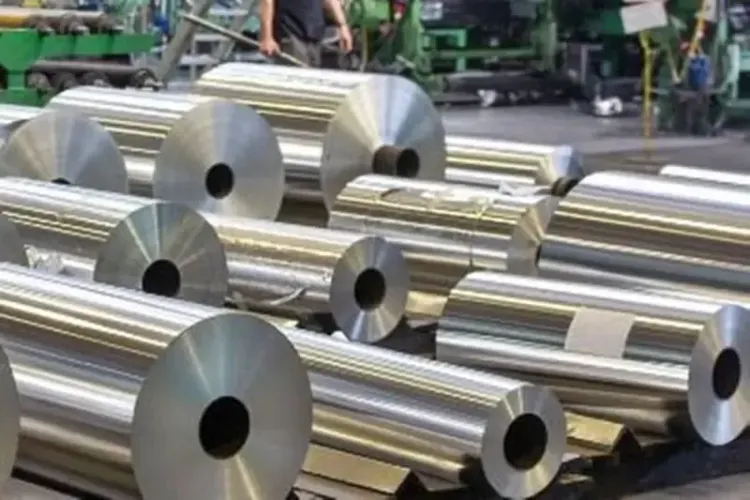Panel Calls for Increased Aluminium Import Duties

Synopsis
Key Takeaways
- Urgent call for higher import duties on aluminium.
- Proposed duties: 10% on products, 7.5% on scrap.
- Current imports fulfill 56% of domestic demand.
- Rising imports threaten economic self-reliance.
- Aluminium sector is vital for several key industries.
New Delhi, Jan 17 (NationPress) A panel comprising industry specialists and former bureaucrats has advocated for immediate policy changes to increase import duties on both primary and downstream aluminium products to 10 percent. Additionally, they propose a 7.5 percent duty on aluminium scrap to mitigate the influx of inexpensive imports into the nation.
This initiative aligns with the strategies employed for other essential non-ferrous metals such as zinc, tin, and lead.
During the webinar titled 'Advancing Aluminium for Atmanirbhar Bharat: Key Imperatives,' hosted by Bureaucrats India, the panel expressed that these actions are crucial for reducing the rising import levels, which currently fulfill 56 percent of domestic demand, while also countering the increasing risk of India becoming a repository for subpar aluminium.
As reliance on imports escalates, the panel cautioned about the dire repercussions for the nation's economic independence and sustainability objectives.
Jayadev Sarangi, a retired IAS officer, remarked, “India’s aluminium sector stands at a pivotal moment. Despite possessing one of the globe’s most integrated aluminium value chains, our dependency on imports and scrap, expected to soar to 66 percent by FY2025, presents a significant threat to economic independence and Net Zero targets. Implementing strategic reforms such as elevating duties to 10 percent on imports and 7.5 percent on scrap is crucial for shielding local manufacturers from unfair competition and maintaining our competitiveness on a global scale.”
Binod K. Singh, a former IRS officer, emphasized, “The aluminium industry serves as the foundation for vital sectors like infrastructure, renewable energy, defense, and electric vehicles. Its importance extends beyond mere production, generating over 800,000 jobs and supporting 4,000 SMEs in downstream fields. Inundating our market with inferior and carbon-heavy aluminium not only hinders domestic growth and investment but also jeopardizes significant national initiatives such as Bharatmala and the 500 GW renewable energy goal for 2030. Unless we increase duties on imports by 10 percent and on scrap by 7.5 percent, among other policy measures, we risk jeopardizing our advancement.”
Deba R. Mohanty, vice president at the Society for the Study of Peace and Conflict, stated, “Aluminium is pivotal for national security and economic development. Enhancing domestic production is essential to meet the growing demand, projected to hit 9-10 MTPA by 2030, and to promote defense self-sufficiency. By imposing higher duties on scrap imports, we can secure our industrial future while also facilitating India’s shift towards a circular economy.”
The panelists collectively urged the government to implement these strategic policy adjustments to counter unfair trade practices, bolster domestic production, and align the aluminium sector with the vision of Atmanirbhar Bharat.









